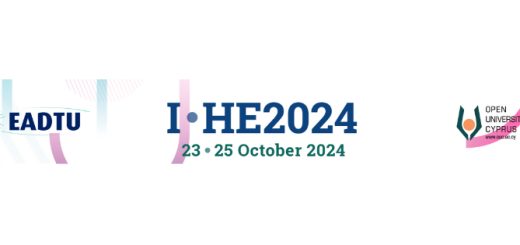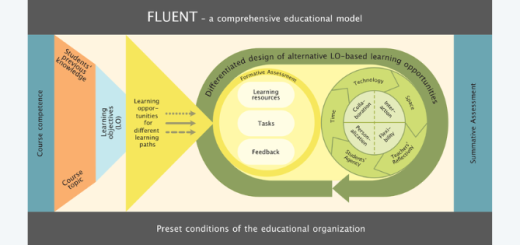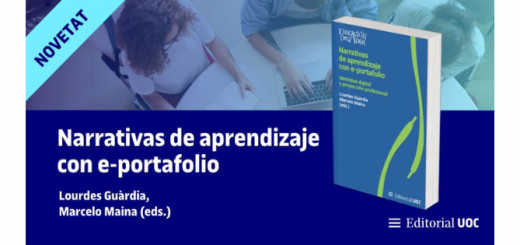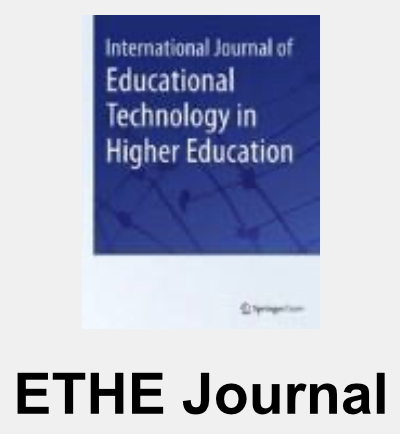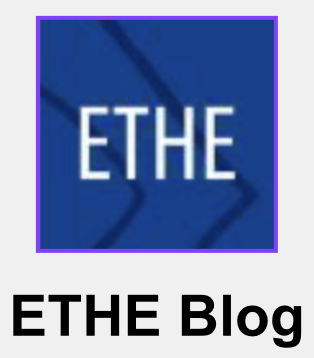Nati Cabrera and Lourdes Guàrdia reflect on educational decision-making based on data and proven evidence at the School of Public Administration of Catalonia
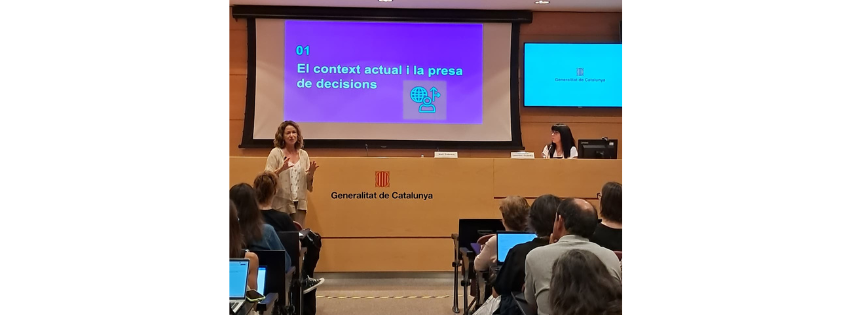
On September 17, Dr. Nati Cabrera, Director of the Master’s Degree in Quality Assessment and Management of Higher Education at the UOC, and Dr. Lourdes Guàrdia, Vice-Dean of teaching at the UOC’s Faculty of Psychology and Education Sciences, and both researchers from the Edul@b research group, made the inaugural presentation of the Summer School of the School of Public Administration of Catalonia (EAPC). The objective of the 2025 edition was to analyze the current context surrounding the field of learning, development and research. The day also had different conferences on new trends in tools, formats and learning methods.
In this framework, the researchers of Edul@b Research Group presented the paper “From data to evidence for decision making: the culture of continuous improvement in training processes” in a session moderated by Sílvia Martínez Simón, head of the Learning Model and Knowledge Management Area, EAPC. The objectives of the presentation were, on the one hand, to promote informed educational decision-making in the public sector and, on the other hand, to show how data can help improve the design, support and results and impact of training.
The current context, characterized by complexity, constant change, the permeability of technology in all areas of human activity and an enormous amount of information that we are not able to assimilate, makes decision-making processes also a complex task. Proofed decision-making can give us more security and, at the same time, more rigour and transparency. A critical look is needed based on proven information, data and evidence.
The researchers invited the audience to make a “tour” through the data and evidence that can help us to better understand and decide with more knowledge in relation to the different fundamental phases of a training process: the design or redesign of the training action; support for learning and the final evaluation of learning, transfer and impact.
The conclusions brought out a series of barriers that must be overcome, such as the resources and skills to be obtained, as well as some of the facilitating strategies such as the promotion of certain leadership styles or the impulse of sustainable, adequate and shared implementation practices.
In essence, making decisions based on data or evidence entails benefits such as transparency, less subjectivity and greater understanding and acceptance of decisions by everyone.

